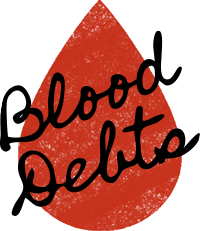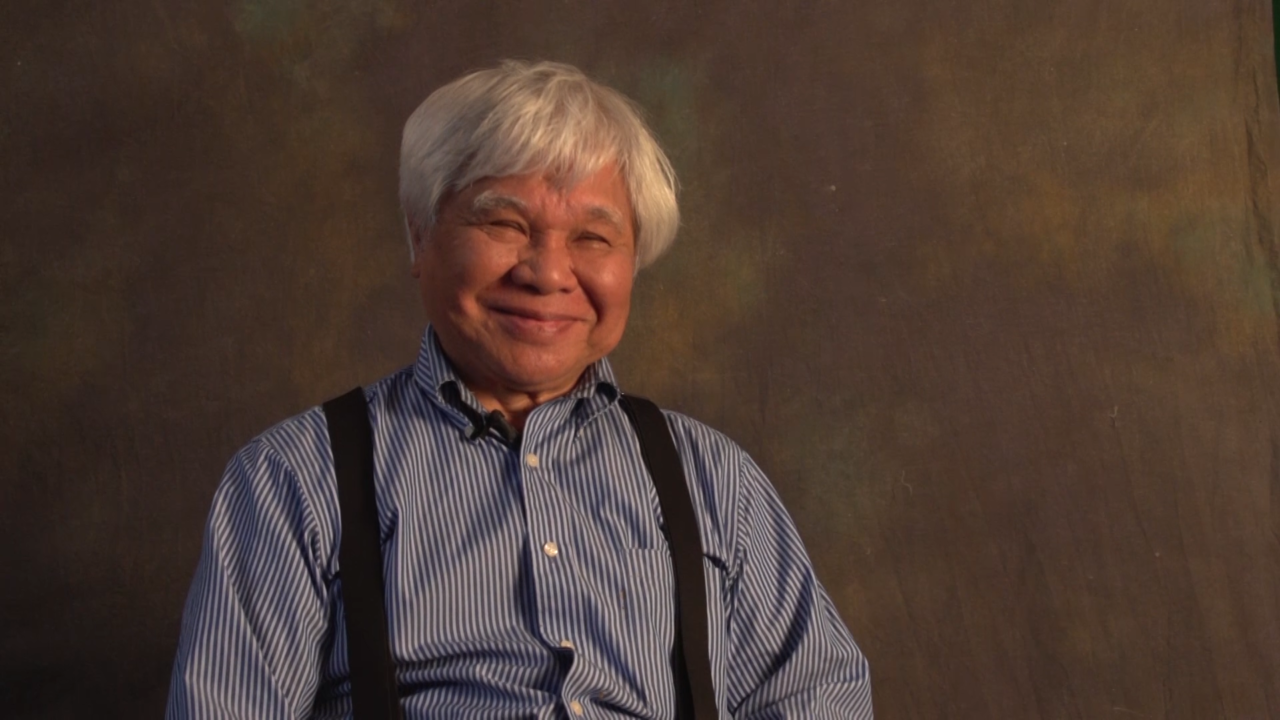Episode 14: Truth, Light & Debt to Community
Transcript
VOX POP BEGINS
I think for debt, what that means to me in the simplest terms, is something that you owe and that you have to work off.
As a Filipino, a Filipino American, Pinoy, I think about, you know, debt from your family. And, yeah, the phrase utang na loob, a little bit debt of gratitude or reciprocity and, you know, always thinking about who I'm indebted to.
And there's an expectation that because somebody did something to you, you have to somehow, you know, give back something in return.
So that's basically what I understand debt to be. It could apply to money, apply to, you know, some some offer of assistance. It could apply to just about anything that involves two people interacting with each other, you know, kind of gaining favor, perhaps giving somebody, you know, requests that maybe he or she herself could only provide. So you can involves two people.
VOX POP ENDS
INTRODUCTION BEGINS
In Blood Debts, we tell the stories of choices and sacrifices to pay back what is owed and pay forward something of value.
I’m your host, Leezel Tanglao.
On this podcast, we talk about one of the few through lines in people’s lives - debt.
You’ll hear stories from the Filipino diaspora around how debt has impacted all aspects of life from those in the medical field, public service sector to creative arts.
As a journalist, I’ve spent more than a decade reporting on the financial aspects of debt in diverse communities.
But many carry debts beyond money.
Jon Melegrito: It is a double edged sword that can mean many things in different situations.
It's really a value that has defined us as a Filipino community.
This sense of, you know, I want to do something good because I can only expect something good back from you, but it also helps build community.
Leezel Tanglao: In this episode we talk to Jon Melegrito, who breaks down the negative and positive aspects of utang na loob and how shining a light on important issues is a storyteller’s debt.
INTRODUCTION ENDS
My name is John Melegrito. I'm based here in Kensington, Maryland. I am a journalist, editor of Manila Mail and also a an activist for veterans rights and a community organizer.
You know, I came from the Philippines. I need housing, you house me for several months until I find a good job. And this is coming, which is a tribute to the traits and values of Filipinos when they have relatives coming from immigrating to this country and they're trying to settle and they're trying to establish themselves. And the reality was hosting them, you know, provide for housing and assistance and all of that.
And once they are stabilized and are financially able to be on their own, then it works both ways so that the host family feels a sense of, yeah, I mean, I was able to help you out. And of course, the family that is assisted feels the same way. And I see that in very many instances and I really applaud our community for continuing to to practice that value of helping.
Now where debt becomes a negative thing is when it's used to coerce to force people to to not essentially bring out what should be a situation where, no, he did something wrong, they should be deported or you should be held accountable. You should be responsible for it instead. I did something good for you, so I expect you not to turn me in or not to give me any trouble. So that's how it all plays out in a negative way in work situations, for instance, as well as in other situations where this kind of expectation is conditioned on the fact that while you're Filipinos, you're not supposed to do this to me kind of thing.
You know, paying forward is something that I think Filipinos also are proud of in terms of practice, because they see debt can lead to a greater sense of community if there is no expectation of a reward or a favor. And then can result in an incremental appreciation of each other's potential for doing good for the community.
And I've seen this in many cases in a community where, you know, you contribute, let's say, to the cause. When Mitzi, one of our leaders, was struggling against cancer, the community rallied around her without expecting anything because they see that when you support a sister who is struggling against the disease, you create a model, a model for that inspires others, you know, not only to want to care, but to see that if you do this for her, then others will also feel that you're doing that, you're doing it for everybody else.
And that's where a debt, you know, becomes a positive thing in the community when it when people see themselves, you know, this notion of a Kapwa, which is another term that is used when needed within the law, when you see the other person as being with you being together, you doing things in common, then I think it enhances not only the relationships, relationships within that community, but it forges a strong bond that serves as a good model for our kids, for our for our children and for others who are, you know, curious or want to know how this community is dealing with situations like that.
Leezel Tanglao: And holding truth to power is one of the most impactful things we can do as storytellers of our own narratives.
There's a lot of confusion, there's a noise, there's a lot of debate, conflicting perceptions. If you care about the community. Then you owe it to the community to help sort through the noise, you know, somebody said we need more light than heat because if you care about your community, you owe it to your sisters and brothers, their children, your elders, to somehow help clarify what seems like a confusing situation because they're bombarded with social media, what you see on TV, all of these images and all of this commentary.
Now, how do I as a journalist, help them navigate through this conflicting images? How do I help create more enlightenment? And so instead of confusion, how do you try to somehow tame these toxic exchanges and find common ground?
So I feel strongly that I owe it to this community, a community that has helped me and given me many opportunities for leadership, giving me the opportunity to take on different challenges for civil rights, for veterans rights.
So because I have benefited from this community in many ways that I feel I owe it to this community as well to help me forge a stronger sense of itself, how it can contribute more meaningfully to the American mainstream and how we can model ourselves to the younger generation who is looking at us for leadership, for inspiration, for encouraging.
OUTRO BEGINS
There are many sides to debt.
This series intends to take you on a journey through defining and redefining debt through stories of Filipinos in the diaspora.
That’s all for this episode, thank you for listening.
To find out more about the series and upcoming episodes and resources, visit Blooddebts.com
Follow us on Facebook, Twitter and Instagram.
Blood Debts is produced and hosted by me Leezel Tanglao.
This series is a legacy project of the Filipino Young Leaders Program.
Shoutout to FYLPRO Batch 8.
This series is dedicated to all those who struggle to talk about uncomfortable issues and for all those who ever felt overlooked.
I see you.
I hear you.
OUTRO ENDS

